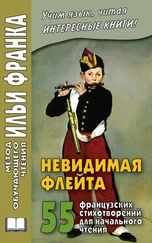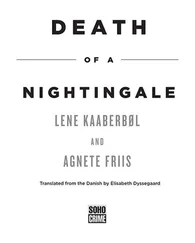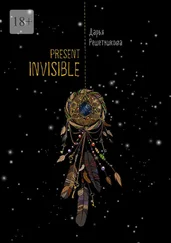Lene Kaaberbol - Invisible Murder
Здесь есть возможность читать онлайн «Lene Kaaberbol - Invisible Murder» весь текст электронной книги совершенно бесплатно (целиком полную версию без сокращений). В некоторых случаях можно слушать аудио, скачать через торрент в формате fb2 и присутствует краткое содержание. Год выпуска: 2012, ISBN: 2012, Издательство: Soho Crime, Жанр: Старинная литература, на английском языке. Описание произведения, (предисловие) а так же отзывы посетителей доступны на портале библиотеки ЛибКат.
- Название:Invisible Murder
- Автор:
- Издательство:Soho Crime
- Жанр:
- Год:2012
- ISBN:9781616951719
- Рейтинг книги:5 / 5. Голосов: 1
-
Избранное:Добавить в избранное
- Отзывы:
-
Ваша оценка:
- 100
- 1
- 2
- 3
- 4
- 5
Invisible Murder: краткое содержание, описание и аннотация
Предлагаем к чтению аннотацию, описание, краткое содержание или предисловие (зависит от того, что написал сам автор книги «Invisible Murder»). Если вы не нашли необходимую информацию о книге — напишите в комментариях, мы постараемся отыскать её.
Invisible Murder — читать онлайн бесплатно полную книгу (весь текст) целиком
Ниже представлен текст книги, разбитый по страницам. Система сохранения места последней прочитанной страницы, позволяет с удобством читать онлайн бесплатно книгу «Invisible Murder», без необходимости каждый раз заново искать на чём Вы остановились. Поставьте закладку, и сможете в любой момент перейти на страницу, на которой закончили чтение.
Интервал:
Закладка:
Pitkin wiped his mouth on his sleeve.
“It won’t stop,” Pitkin said, his voice making it clear he found this unfair. “I haven’t eaten anything at all today and still it just keeps coming.”
He sank back onto the bunk, on a pile of quilts and pillows. The dog was sniffing at the pool of vomit outside, but when Pitkin snapped his fingers, it obediently came back in and sat down next to him.
“Do you want a glass of water or anything?”
Sándor asked awkwardly.
Pitkin shook his head. “I’m tired,” he said. “I think I’m going to take a nap.”
“What was it you found?” Sándor tried one more time.
“I can’t talk now,” Pitkin grunted and lay down.
“Not even to help Tamás?”
But that appeal no longer had any effect.
“He said I couldn’t tell anyone,” Pitkin said, closing his eyes.
Sándor sat up straighter. The dog followed his every move.
“Pitkin.…”
A fake snore was all that came from Pitkin.
“You’re not really asleep.…” Sándor tried. But all he heard was more snoring, and he began to realize that he wasn’t going to get anything else out of this conversation. He got up slowly so as not to alarm the dog. Pitkin opened his eyes.
“You’re not leaving, are you?”
“Well, you’re just going to go to sleep, right?”
“But you promised my grandpa.”
The fear shone out of Pitkin’s eyes. Sándor didn’t know if he was always afraid of being alone or if it was just because he was sick. Either way, he couldn’t resist the boy’s obvious terror.
“Okay, I’ll stay for a bit,” he said.
Pitkin grunted in satisfaction and made himself more comfortable. Sándor sat quietly next to him until the old man came back.
T HE NEXT MORNINGBolgár’s BMW was parked outside Valeria’s house when Sándor went out to pee. Stefan was leaning against the front door with his arms crossed. When he spotted Sándor, he straightened up and started moving.
“Mr. Bolgár wants to talk to you,” he said.
Sándor had pretty much guessed that.
“So early? Can’t it wait until I’ve had a pee?”
Apparently it couldn’t. There was a certain inevitability to the way Stefan was blocking his way.
“Now,” he said.
A few hours later Sándor was once again sitting on a bus. Not the local one this time, but an old, blue Ford Transit minibus. All seventeen seats were occupied, and the aisle between the seats was stuffed full of luggage in suitcases and plastic bags. He was the only one from Galbeno, but most of the others were from similar villages or from Miskolc’s Roma ghetto. Three women had their own section at the very back of the bus where a couple of sheets could be rigged up as a curtain at night. One of them was traveling with her little daughter, a girl of about four. The rest of the passengers were men.
Sándor was sitting on a worn, gray imitation leather seat that was already sticking to his thighs, with his feet awkwardly wedged on either side of the cardboard box of food and water that Valeria had presented him with, and his feeling of unreality grew until he was seriously considering banging his head against the window a couple of times just to check if it hurt. Outside the window Miskolc’s industrial district slid by, a gray and rusty brown landscape of fences and crumbling concrete, dented steel containers, and high smokestacks from the time when smokestacks were a symbol of progress, growth, and jobs.
Ten days ago, he thought. Ten days ago I was a law student. I was living in Budapest. I had a future.
Back then he had enjoyed the illusion that he was the master of his own life, that he could steer it in whichever direction he wanted. With a few limitations, of course, and as long as he was good and careful about not breaking the rules. Since then he had been jerked this way and that, first by Tamás, then by the NBH, the university, his professor, his mother, his family, and now most recently Bolgár.
“We’ve heard from Denmark,” Bolgár had said when Stefan deposited Sándor on the patio like the previous time. “Your brother needs you.”
“Tamás? What for?”
“Who asks why when his brother needs help? He just wants to talk to you, he says. Don’t worry, Sándor; we’ll take care of everything. At no extra charge. You’re leaving this afternoon.”
Again it wasn’t a question. Not even a demand for his consent. His compliance was taken for granted. But Bolgár might not have trusted completely in his obedience after all; as he was put on the bus, Stefan took his wallet, removed his Visa card, and gave it to the driver before handing Sándor back his money.
I’m going to Denmark, he told himself. It didn’t really make any sense. If he had been the cowboy in one of the two tattered Morgan Kane novels he had in his bag, he would have a clear mission at this point: someone who needed to be found, rescued, or avenged. Of course there would also be bad guys and trials and tribulations, and a dynamic hero who would see things through to their conclusion and emerge victorious in the end.
Sándor had a hard time seeing what his mission was. And an even harder time picturing the victorious hero.
Bolgár wanted him to help his brother. But with what? he wondered. Presumably with selling whatever the heck he and Pitkin had found, on some ultra black market to a buyer who was no doubt a criminal and possibly worse. What an outstanding start to his law career that would be.
But you don’t have a law career anymore, an icily sarcastic voice jeered in his mind. And if you don’t get Bolgár his damned two million forints, you might not have a family anymore, either. Because that was what this was about. It was never said out loud, but that was the implication. It was the reason he hadn’t refused to go, the reason he hadn’t even protested when Stefan took his credit card. Valeria and the girls. Their lives and ability to survive in the village. He didn’t even dare contemplate what consequences it might have for them if he stood up to a man like Bolgár.
He rubbed his forehead with his wrist and suddenly felt like talking to Lujza. Not to tell her where he was going or what had happened so far. Just … because. Because she was his real life, the one he had had before he became hopelessly trapped in this web of family and past and veiled threats.
He pulled his phone out of his jacket pocket. If he was going to call, it made the most sense to do it while it was still a domestic call. But when he tried to turn the phone on, it shut off right away. The battery needed to be recharged.
He sat there for a while with the phone in his hand. Then he let it drop back into his pocket.
Maybe it was better this way. He had no idea what he would have said to her anyway.
 INA DIDN’T WANTto talk to anyone anymore.
INA DIDN’T WANTto talk to anyone anymore.
They had called from the children’s unit that morning while Nina was leading her class for new mothers, Infant Health. That was one of the more pleasant jobs at the Coal-House Camp. Women who had just given birth had an astounding ability to shut out the rest of the world. The five women sat on the floor of the clinic’s little waiting room with their babies in front of them on soft, brightly colored baby blankets as they followed Nina attentively with their eyes.
“Put your baby on its tummy as often as possible. After each diaper change, for example.”
Nina squatted down and carefully rolled a three-month-old boy onto his stomach, and couldn’t help but smile. The boy struggled to hold his big wobbly head, but gave up after a few seconds, resting his forehead on the blanket in front of him and squawking shrilly and angrily. The women laughed. The boy’s mother, a very young woman from Sudan, stroked him soothingly over his dusting of curly hair. Then she turned him around, picked him up in a quick and secure grip, and snuggled his little body to her chest. The boy instantly stopped his screeching, but was still whimpering at the affront when the phone rang. Rikke from the children’s unit made her brief report. Rina wasn’t sleeping, wasn’t eating, and refused to talk to anyone. Including the kids she actually knew well from the family section at Unit B.
Читать дальшеИнтервал:
Закладка:
Похожие книги на «Invisible Murder»
Представляем Вашему вниманию похожие книги на «Invisible Murder» списком для выбора. Мы отобрали схожую по названию и смыслу литературу в надежде предоставить читателям больше вариантов отыскать новые, интересные, ещё непрочитанные произведения.
Обсуждение, отзывы о книге «Invisible Murder» и просто собственные мнения читателей. Оставьте ваши комментарии, напишите, что Вы думаете о произведении, его смысле или главных героях. Укажите что конкретно понравилось, а что нет, и почему Вы так считаете.












